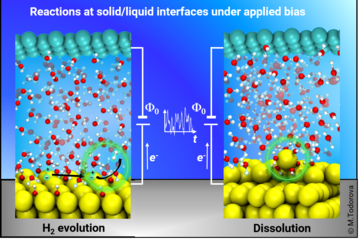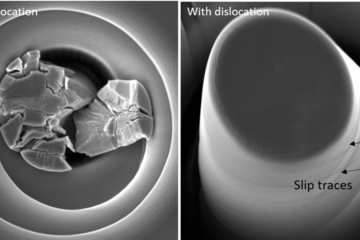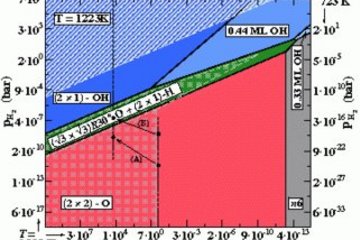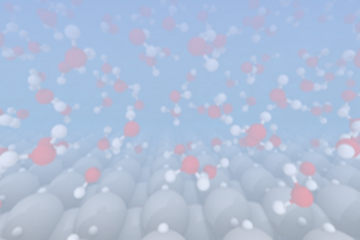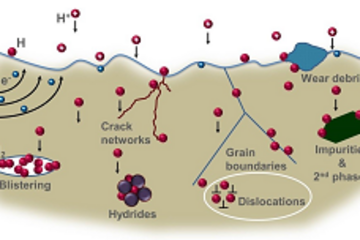All genres
1041.
Talk
First principles calculations of the stacking fault energies for Mn and Fe. Computational Materials Science on Complex Energy Landscapes Workshop, Imst, Austria (2010)
1042.
Talk
Exploring the unusual diffusion of N adatoms at GaAs(001) surface. Computational Materials Science on Complex Energy Landscapes Workshop, Imst, Austria (2010)
1043.
Talk
Chemical trends for the solution enthalpy of hydrogen in 3d transition metals. Computational Materials Science on Complex Energy Landscapes Workshop, Imst, Austria (2010)
1044.
Talk
Stacking fault properties in high-Mn steels: An ab initio study. Computational Materials Science on Complex Energy Landscapes Workshop, Imst, Austria (2010)
1045.
Talk
Ab initio determination of the magnetic free energy contribution of metallic systems. Computational Materials Science on Complex Energy Landscapes Workshop, Imst, Austria (2010)
1046.
Talk
Fully numerical orbitals as an analyzable Tight Binding Basis Set. Computational Materials Science on Complex Energy Landscapes Workshop, Imst, Austria (2010)
1047.
Talk
Spin-polarization-induced structural selectivity in substituted Laves phases. Workshop, Imst, Austria (2010)
1048.
Talk
Ab-initio based growth simulations of III-Nitride nanowires. Computational Materials Science on Complex Energy Landscapes Workshop, Imst, Austria (2010)
1049.
Talk
Polarization-induced charge carrier separation in realistic polar and nonpolar GaN quantum dots. Computational Materials Science on Complex Energy Landscapes Workshop, Imst, Austria (2010)
1050.
Talk
Band alignment in the framework of GW theory. Computational Materials Science on Complex Energy Landscapes Workshop, Imst, Austria (2010)
1051.
Talk
Ab initio investigations of the silicon dangling bond. Computational Materials Science on Complex Energy Landscapes Workshop, Imst, Austria (2010)
1052.
Talk
Kinetic Monte Carlo simulations and ab initio studies of nano-precipitation in ferritic steels. Computational Materials Science on Complex Energy Landscapes Workshop, Imst, Austria (2010)
1053.
Talk
Stabilization of polar ZnO surfaces. Computational Materials Science on Complex Energy Landscapes Workshop, Imst, Austria (2010)
1054.
Talk
Computational study of interstitial ordering in bcc iron. Computational Materials Science on Complex Energy Landscapes Workshop, Imst, Austria (2010)
1055.
Talk
Strain-induced metal-hydrogen interactions across the first transition series - An ab initio study of hydrogen embrittlement. Computational Materials Science on Complex Energy Landscapes Workshop, Imst, Austria (2010)
1056.
Talk
First principles study of thermodynamic, structural and elastic properties of eutectic Ti-Fe alloys. Computational Materials Science on Complex Energy Landscapes Workshop, Imst, Austria (2010)
1057.
Talk
Ab initio up to the melting point: Efficient sampling strategies of anharmonic free energies. Computational Materials Science on Complex Energy Landscapes Workshop, Imst, Austria (2010)
1058.
Talk
Ab initio simulation of magnetic shape memory alloys: The interplay of magnetic and vibrational degrees of freedom. Oberseminar: Ultraschnelle Dynamik in Festkörpern und an Grenzflächen, Fakultät für Physik, Universtität Duisburg-Essen, Duisburg, Germany (2010)
1059.
Talk
Crustacean skeletal elements: Variations in the constructional morphology at different hierarchical levels. DFG Winter School Priotity Programme 1420: "Biomimetic Materials Research: Functionality by Hierarchical Structuring of Materials", Kerkrade, The Netherlands (2010)
1060.
Talk
Ab initio study of calcite substituted by Mg and P. Seminar talk at Masaryk University, Brno, Czech Republic (2009)




